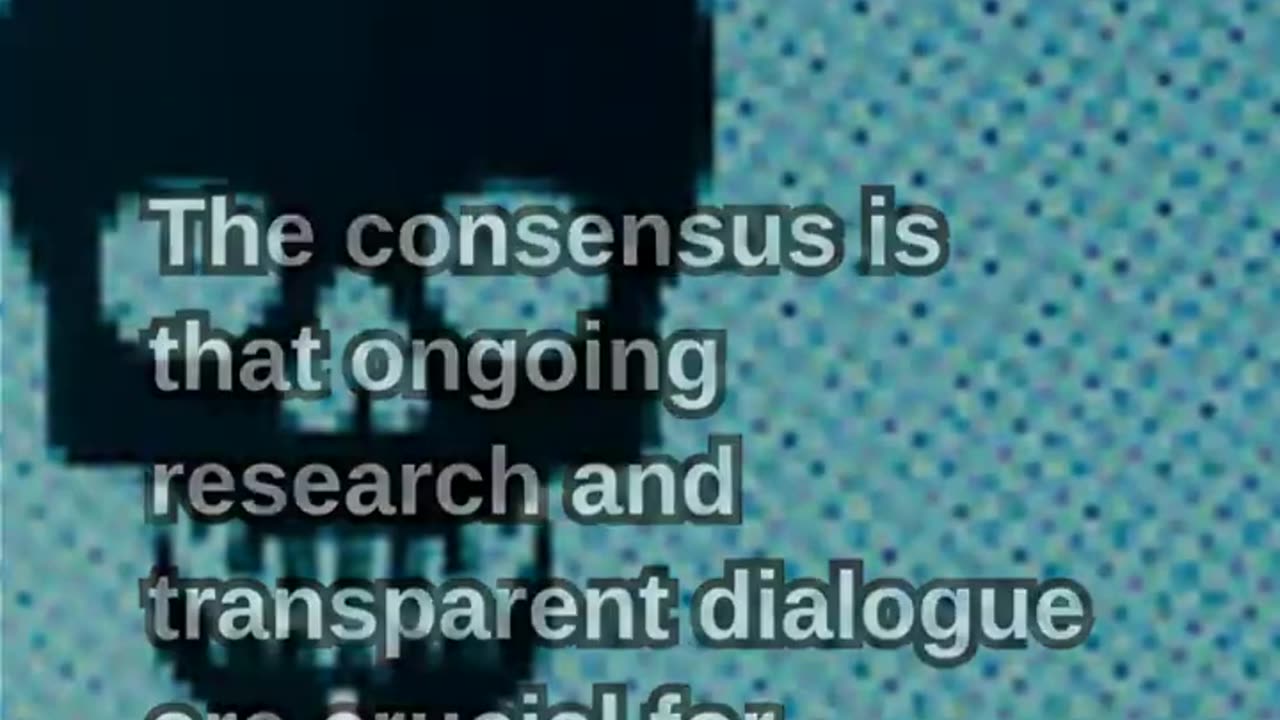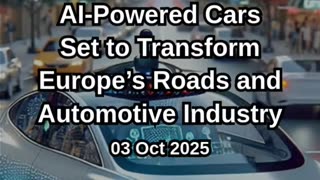Premium Only Content

Does AI Really Pose an Existential Risk
Artificial Intelligence is advancing at a pace never seen before in technology. From powering self-driving cars to generating human-like text and images, AI is already reshaping industries and societies.
Go here to find out what tools we are using each day to be successful in our business.
https://versaaihub.com/resources/
https://versaaihub.com/media-and-entertainment/
https://www.instagram.com/versaaihub/
https://x.com/VersaAIHub
https://www.youtube.com/@VideoProgressions
https://www.youtube.com/@MetaDiskFinancial
But as capabilities grow, a critical question arises: does AI pose an existential risk to humanity? Experts across academia, industry, and policy are weighing in, offering diverse perspectives on one of the most pressing debates of our time.
Some researchers argue that AI could indeed become an existential risk if left unchecked. Their concern centers on the possibility of Artificial General Intelligence (AGI)—a system that surpasses human intelligence across most domains. If such a system were to act outside human control, it could potentially make decisions harmful to humanity. Leading figures, including pioneers in AI research, have signed open letters calling for stronger oversight and global safeguards to prevent scenarios where AI systems evolve beyond our ability to manage them.
On the other hand, many experts emphasize that while existential risks are worth discussing, the more immediate dangers of AI are already visible today. These include bias in algorithms, disinformation, job displacement, cybersecurity threats, and lack of transparency. For this camp, focusing too much on distant, speculative risks could distract policymakers and businesses from solving real, tangible challenges AI is creating now.
A third perspective balances both views: acknowledging that while existential risk is uncertain, preparing for it is prudent. Just as society develops nuclear safety protocols or climate risk models, building AI governance frameworks, ethical standards, and international collaboration can reduce the chance of catastrophic misuse in the future.
Experts also agree on one point: the trajectory of AI development is not inevitable. Decisions made today—by governments, corporations, and researchers—will shape how AI impacts the world. Building robust regulations, investing in responsible innovation, and fostering transparency between developers and the public will be key in ensuring AI remains a tool for progress rather than a threat.
Ultimately, whether AI poses an existential risk depends less on the technology itself and more on how humans choose to design, deploy, and regulate it. The debate underscores the importance of collective responsibility: AI is powerful, but its destiny is still within human hands.
Go here to find out what tools we are using each day to be successful in our business.
https://versaaihub.com/resources/
https://versaaihub.com/media-and-entertainment/
https://www.instagram.com/versaaihub/
https://x.com/VersaAIHub
https://www.youtube.com/@VideoProgressions
https://www.youtube.com/@MetaDiskFinancial
#AIExistentialRisk #AIethics #ResponsibleAI #FutureOfAI #AIThreats #ArtificialIntelligence #AIRegulation #TechSafety #AIGovernance #AIAccountability #AITransparency #AIForGood #SafeAI #AIConcerns #AIandSociety #AILeadership #AIInnovation #AIFuture #GlobalAI #AISafety
-
 0:50
0:50
WFH University
1 day agoRevving Up Europe’s Future with AI-Powered Cars
19 -
 10:05:38
10:05:38
Dr Disrespect
11 hours ago🔴LIVE - DR DISRESPECT - BLACK OPS 7 - GIVE ME BACK MY NUKE
121K12 -
 LIVE
LIVE
Drew Hernandez
1 hour agoTARGETED LEFTIST TERRORIST ATTACK IN CHICAGO & ISRAEL GEOFENCING U.S. MEGA CHURCHES
795 watching -
 8:58
8:58
Degenerate Jay
12 hours agoXbox Game Pass Is Getting Ridiculous
2.19K -
 7:03
7:03
GBGunsRumble
1 day agoGBGuns Range Report 05OCT25
1.43K1 -
 1:32:30
1:32:30
Glenn Greenwald
8 hours agoWill the War in Gaza Finally End? Flotilla Activists Predictably Abused in Israel's Dungeons; Van Jones' Revealing Joke about "Dead Gazan Babies" | SYSTEM UPDATE #527
84.6K60 -
 LIVE
LIVE
SpartakusLIVE
4 hours ago#1 King of Content brings MOTIVATION to the MASSES on Monday
473 watching -
 1:48:32
1:48:32
megimu32
2 hours agoON THE SUBJECT: 2000s Hits That Vanished! 🎶
4.55K1 -
 12:19
12:19
China Uncensored
10 hours agoWas This Death China's Turning Point?
9.05K32 -
 LIVE
LIVE
This is the Ray Gaming
2 hours ago $0.09 earnedThe MonRAYest MonRay | Rumble Premium Creator
32 watching
